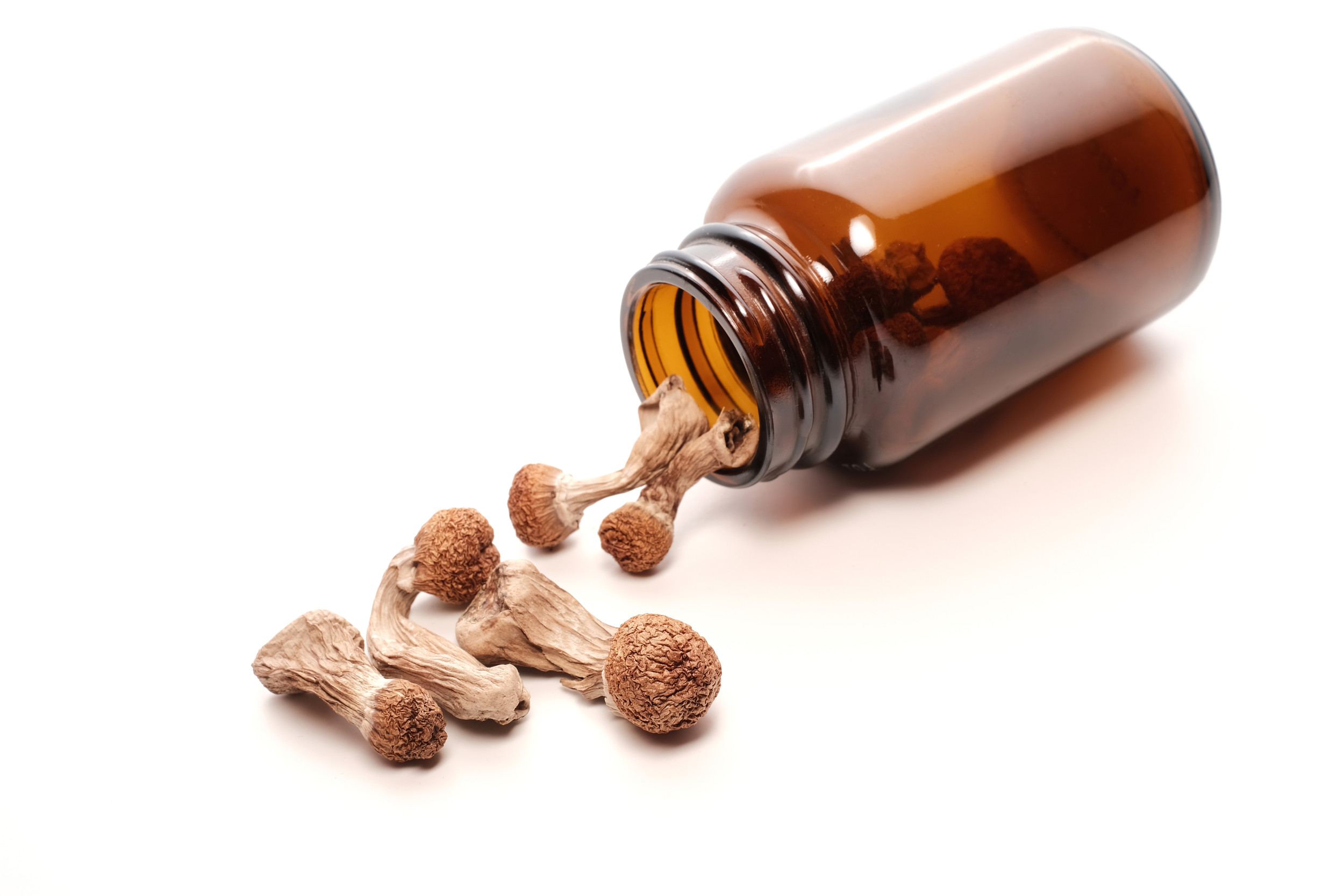
Despite significant advances in the field of psychiatry, many patients continue to suffer from depression, anxiety, post-traumatic stress disorder (PTSD) and many other mental illnesses. The unfortunate truth is that not all traditional medical treatments are effective for everyone. Only about 30%-45% of patients achieve remission from depression with antidepressants like selective-serotonin reuptake inhibitors (SSRI's); about 30%-60% achieve remission for generalized anxiety disorder; and only about 20%-30% achieve remission from PTSD. Inadequate treatment responses to traditional psychiatric medication options necessitates more treatment options. Psilocybin may offer a novel pathway forward for patients with treatment-resistant psychiatric disorders.
Much of my work centers around connecting the traditional practice of psychiatry with spirituality. In this regard, psilocybin offers something that other psychiatric treatments do not. In addition to providing a novel biological mechanism for the treatment of the above psychiatric illnesses, psilocybin may also enable certain people to have a subjectively meaningful, self-transcendent, mystical experience.
For some, these experiences have been reported to be among their most personally meaningful and spiritually significant experiences. The healing that can occur with psilocybin can therefore occur at both a biochemical level and spiritual level, which is unique relative to all other psychiatric medications presently on the market.
Let's dive into psilocybin's potential benefits and drawbacks, recent history, and prospects for legalization in the United States.
Potential Benefits and Drawbacks
Psilocybin is a chemical compound found in the Psilocybe genus of mushrooms (common street name: magic mushrooms). Once ingested, psilocybin is metabolized into the active metabolite psilocin in the human body, stimulating the serotonin 2A receptors in the brain.
Research suggests that individuals with depression who responded to psilocybin-assisted therapy showed increased brain connectivity not just during their treatment, but up to three weeks afterward. Since patterns of brain activity in depression can become rigid and restricted, psilocybin could potentially help the brain to break out of this rut in a way that traditional medications, like SSRI antidepressants, do not.
Additionally, psilocybin promotes the growth of new neurons and synapses in the hippocampus, a brain region involved in learning and memory formation. It was also found to reverse the decline in proteins associated with neuroplasticity and fear extinction, an effect that provides promising potential for using psilocybin in the treatment of PTSD.
Modern Historical Timeline of Events
The benefits of psilocybin for treating depression, anxiety, and other disorders were first studied in the 1950s and 1960s. Back then, it was marketed in many countries under the name Indocybin as a shorter-acting alternative to lysergic acid diethylamide (LSD), and was used safely as an adjunct to psychotherapy.
In 1965, the United States banned the marketing and possession of "hallucinogenic" drugs, leading to the discontinuation of Indocybin in 1966. By 1970, psilocybin, LSD, and other hallucinogens were placed in Schedule I of the Controlled Substances Act, meaning that it has a high potential for abuse and no currently accepted medical use.
Yet, the U.S. Food and Drug Administration (FDA) designated psilocybin as a "breakthrough therapy" for treatment-resistant depression in 2018 and for major depressive disorder in 2019, a label designed to speed the development and review of the drugs to treat these serious medical conditions. However, psilocybin still currently remains a Schedule I drug.
Prospects for Legalization
The prospects for legalization of psilocybin appear favorable. Some experts project that most states will have passed legislation legalizing psychedelics by 2033–2037. Oregon and Colorado have already legalized the use of psilocybin in certain therapeutic settings.
Both states, and a number of municipalities, including Oakland and Santa Cruz, have decriminalized psilocybin for personal, non-commercial use. Much of psilocybin's future hinges upon the FDA's decision on ongoing clinical trials, the outcomes of which could halt the process or encourage further research.
Wrapping Up
The exploration of psilocybin's potential as a therapeutic agent represents a promising pathway for individuals grappling with treatment-resistant psychiatric disorders. Despite the historical setbacks and regulatory challenges, recent recognition of psilocybin by the FDA as a "breakthrough therapy" underscores its potential impact. As the landscape of psychedelic reform evolves, careful scientific scrutiny and regulatory changes will be pivotal in realizing the therapeutic promise of psilocybin.
The ongoing clinical trials and legislative shifts in states like Oregon and Colorado offer glimpses into a future where psilocybin could provide essential relief for those who have not found respite in conventional treatments. Balancing enthusiasm with scientific rigor is key as we navigate the trajectory toward potential psilocybin legalization, ensuring the well-being of patients remains at the forefront of this transformative journey.
Uncommon Knowledge
Newsweek is committed to challenging conventional wisdom and finding connections in the search for common ground.
Newsweek is committed to challenging conventional wisdom and finding connections in the search for common ground.





